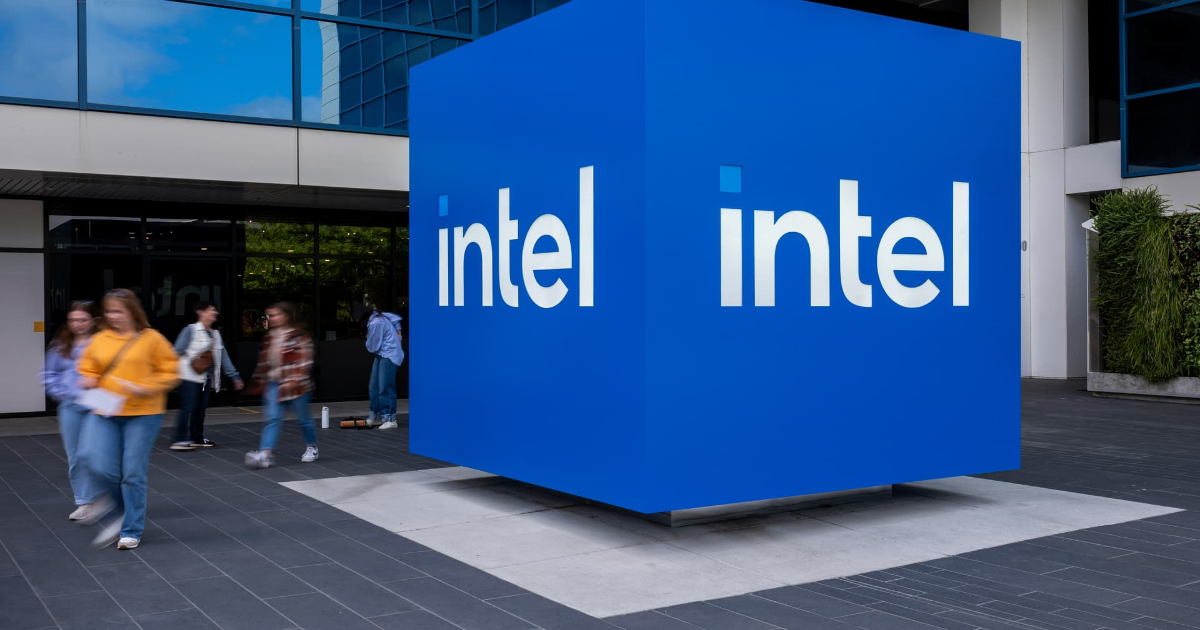The Intel headquarters in Santa Clara, California, US, on Wednesday, April 23, 2025. Intel Corp. is scheduled to release earnings figures on April 24.
Intel reported first-quarter results on Thursday that beat analysts’ estimates, while issuing disappointing guidance and announcing plans to slash operational and capital expenses in the coming year, the first under CEO Lip-Bu Tan. The stock fell 7% in extended trading.
Here’s how the company did, versus LSEG consensus estimates:
- EPS: 13 cents, adjusted vs. 1 cent estimated
- Revenue: $12.67 billion vs. $12.3 billion estimated
Intel said it expects revenue for the current quarter of $11.8 billion dollars at the midpoint of the range, lower than the average analyst estimate of $12.82 billion. The company said earnings will be breakeven, while analysts were looking for profit of 6 cents per share.
Intel said its second-quarter guidance reflected elevated uncertainty driven by the macro environment.
For the first quarter, Intel reported a net loss of $800 million, or 19 cents per share, due to higher costs of sales and some writedowns. That compares with net income of $2.7 billion, or 63 cents per share, last year.
It’s the chipmaker’s first earnings report since Tan over as CEO in March, after Pat Gelsinger stepped down in December under pressure from board members and investors. Gelsinger’s tenure was highlighted by the company’s inability to effectively compete in artificial intelligence and its efforts to move into semiconductor manufacturing for other companies, including competitors.
“The first quarter was a step in the right direction, but there are no quick fixes as we work to get back on a path to gaining market share and driving sustainable growth,” Tan said in a statement.
Intel said on Thursday that it was planning to cut operational and capital expenses, removing management layers, in order to become more efficient. The company said it expected $17 billion in operational expenses this year, down from a previous target of $17.5 billion, and that it would target $18 billion in capital expenses in 2025, down from a previous target of $20 billion.
Intel said it hasn’t included restructuring charges in its guidance. Finance chief David Zinsner told CNBC’s Kristina Partsinevelos that the reduction in operating expenses would include job cuts, especially for managers, but that Intel has not yet finalized a number of cuts.
“There is no way around the fact that these critical changes will reduce the size of our workforce,” Tan said in a memo to employees that was published by Intel on its website. He said that the cuts would begin this quarter.
Intel’s investors hope Tan can turn around a company that’s been losing market share in its core processor business, and doesn’t have a competitive AI chip to Nvidia, which dominates the fast-growing sector.
Tan has already started to shape his team, last week naming networking chief Sachin Katti to be the company’s chief technology officer and head of AI, leading Intel’s overall AI strategy and product release plans. Tan said on Thursday in a memo that Intel employees would have to work four days per week in the office by September.
Intel’s data center group reported $4.1 billion in sales, which was up 8% year-over-year. Intel said it had merged its networking and edge computing group, previously led by Katti, into its data center organization.
The company’s other big business, chips for PCs, is reported under the Client Computing Group, and it fell 8% on an annual basis to $7.6 billion in sales.
Intel’s burgeoning foundry business reported $4.7 billion in revenue, although most of those sales come from Intel’s other divisions to manufacture its chips.
